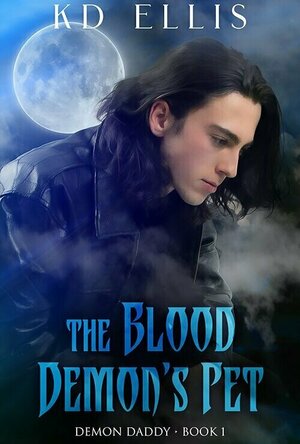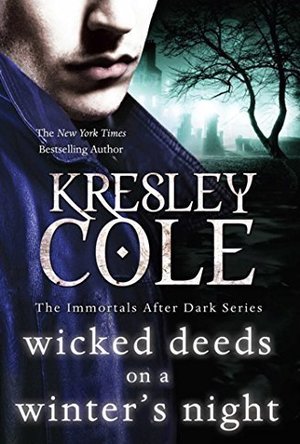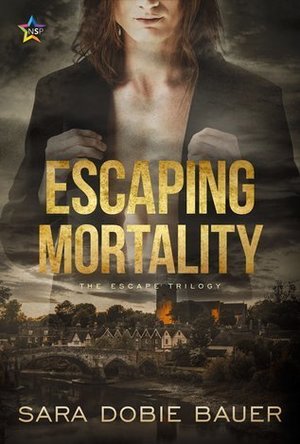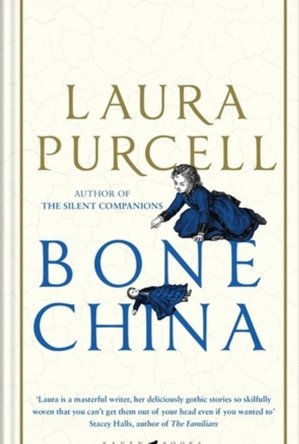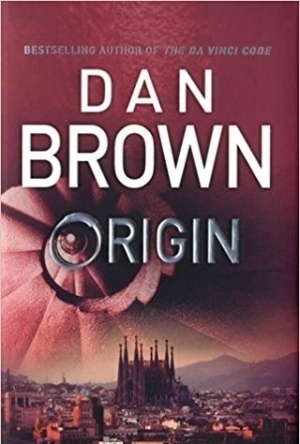
Origin
Book
The spellbinding new Robert Langdon novel from the author of The Da Vinci Code. 'Dan Brown is the...
ThrillerBook DanBrownBook
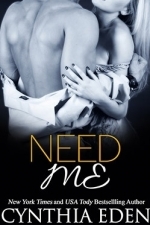
Need Me (Dark Obsession, #3)
Book
Innocent…or guilty? The cops think that Julianna Smith is a murderer. No one will listen when...
Merissa (13792 KP) rated The Blood Demon's Pet (Demon Daddy #1) in Books
Oct 31, 2023
Levi has been alone for quite a while. The last time he thought he'd found a long-term love, he was betrayed and stolen from. Since then, when he needs to feed, he keeps it as clinical as possible. Eryn is a werewolf who can't control either his shifts or the wolf inside. He gets told by the Beta that he has killed the Alpha, but he will help him escape. Can you hear the alarm bells ringing? I could and I hated what poor Eryn went through.
The attraction is instant but Levi tries to keep it clinical, even though he doesn't know Eryn's whole story. He isn't prepared to take a risk. In fact, when things move on between them, he is the one to put on the brakes and take a step back. I didn't like his behaviour (as I wasn't meant to) but I did understand it.
When he and Eryn are together, make sure you've got a fan because these two are H.O.T! Slowly, slowly in every way but s€x. And just when it gets even better, everything goes to hell in a handbasket, thanks to the ex. And...
...then it ends. So be prepared. I knew it ended on a cliffhanger and it still caught me by surprise.
I loved this story and will be re-reading it in the time I have to wait for the next part. Absolutely brilliant and definitely recommended by me.
** same worded review will appear elsewhere **
* A copy of this book was provided to me with no requirements for a review. I voluntarily read this book; the comments here are my honest opinion. *
Merissa
Archaeolibrarian - I Dig Good Books!
Oct 31, 2023
Darren (1599 KP) rated 12 Rounds 3: Lockdown (2015) in Movies
Jun 20, 2019
When Shaw uncovers the truth he finds himself being hunted in the precinct by Burke and his men Gideon (Cudmore), Darrow (Munro) Harris (Olsson), Meeks (Levins) and Saul (Morrow). Shaw finds himself locked in the station with only the rookie Jenny Taylor (Smyth) not hunting him down like Burke’s men.
12 Rounds 3: Lockdown is an action film that does everything you need it to without making anything over complicated. We have the one man taking on the villains in a building with no escape to expose the truth. What more do you need in an action film. Saying that we have one final twist that comes off very cheap and forced. This is something that is easy to watch which will work for casual viewing.
Actor Review
Dean Ambrose: John Shaw is the honest cop that has just returned to work after being injured in the line of duty. He uncovers that his former partner has been Burke and his men have become corrupt. He has to survive a lockdown being hunted down by all of the men and being framed for everything to get the truth out. Dean is very good in this role with a potentially new action star.
Roger Cross: Tyler Burke is the former partner of Shaw but they have gone their separate ways with Burke entering into the world of corruption but when he is about to get busted he will kill anyone that gets in his way including Shaw who is the only man stopping his team from being exposed. Roger makes for a good leading villain role.
Daniel Cudmore: Gideon is one of the men working with Burke, he is the psychical presence that Shaw must overcome in the traditional big guy little guy fight in an action movie. Daniel is good for what he needs to be in this film without standing out any more than the rest of the bad guys.
Lochlyn Munro: Darrow is the tech guy on Burke’s team he does everything to make sure that Shaw can’t communicate or escape with the outside world. Lochlyn does well in this role which again is just like the rest of the bad guys.
Support Cast: 12 Rounds 3: Lockdown has a very simple used of supporting cast with most of them being the people trying to kill Shaw with the rest outside working out what to do.
Director Review: Stephen Reynolds – Stephen gives us an action film that is an easy watch as well as being non-stop.
Action: 12 Rounds 3: Lockdown has plenty of action going on from start to finish with the nothing being too over the top but never seems to stop.
Crime: 12 Rounds 3: Lockdown has all the criminals being police which is a nice take on the crime side of the story.
Thriller: 12 Rounds 3: Lockdown doesn’t stop which is always a good thing in an action film.
Settings: 12 Rounds 3: Lockdown keeps nearly all of the film inside the police station which helps keep the action in a small space.
Special Effects: 12 Rounds 3: Lockdown uses the special effects well without having to use them too often.
Suggestion: 12 Rounds 3: Lockdown is one for the action fans out there to enjoy, it is an easy watch. (Action Fans Watch)
Best Part: Ambrose is great with no previous experience.
Worst Part: Final Twist.
Believability: No
Chances of Tears: No
Chances of Sequel: Maybe
Post Credits Scene: No
Oscar Chances: No
Runtime: 1 Hour 30 Minutes
Trivia: Due to being in WWE where they perform in front of a live audience on live television, Dean Ambrose was used to reading his lines in one try and got aggravated when other actors forgot their lines.
Overall: Enjoyable action film that is easy to watch.
https://moviesreview101.com/2016/04/04/12-rounds-3-lockdown-2015/
Chelsee R Clawson (23 KP) rated Wicked Deeds on a Winter's Night (Immortals After Dark #4) in Books
Feb 4, 2018
Debbiereadsbook (1669 KP) rated Escaping Mortality (Escape Trilogy #3) in Books
Jan 28, 2019
This is the third and final book in the Escape trilogy and you rally MUST read the other two books first. You need to know how Edmund and Andrew found themselves in the middle of the Atlantic Ocean, looking for an Elder!
Only Andrew has a say in these books, and THIS one, more than the other two, I NEEDED Edmund I really did! Some things happen here, that made me want to hear what he had to say, so bloody bad and he doesn't. I KNEW that he probably would not have a say, but a girl can hope, right?
Edmund and Andrew and their friends are on a boat to England and to find the Elder. Once the Elder has located and Edmund turned, they continue on to visit Edmund's sick mother. The "friend" looking after her is vile and dealing with her and the gifts the Elder has bestowed upon him, pushes Edmund to his limits. Then WHY the Elder gave Edmund these gifts becomes clear and Edmund has a choice: Andrew or the Elder.
I found this one a little less sexy than the others, but a whole lot more bloody! The way Edmund deals with the friend was scary, but needed I think. The Elder? Well he choose his path, once it became clear that there is, and there will only ever be, ONE person for Edmund.
I did not see what the "friend" was up to, looking after Edmund's mother, nor did I see what the Elder had planned fro Edmund, so it was nice to be surprised by those things.
I LOVED the epilogue! Seriously well played with that one!
I have enjoyed these three short bursts of Andrew and Edmund, but I really think had Edmund been given a voice too, these would have been all 5 star reads.
Thank you, for letting me read your books, Ms Dobie Bauer!
4 solid stars
**same worded review will appear elsewhere**
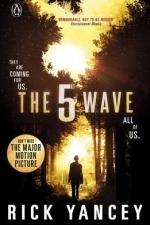
The 5th Wave: Book 1
Book
*NOW A MAJOR FILM by Sony Pictures, starring Chloe Grace Moretz* 'Wildly entertaining ...I couldn't...
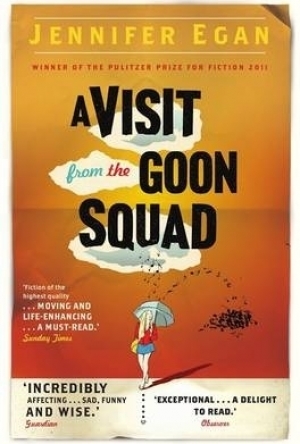
A Visit from the Goon Squad
Book
Jennifer Egan's spellbinding novel circles the lives of Bennie Salazar, an ageing former punk rocker...
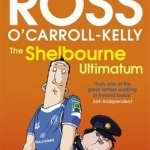
The Shelbourne Ultimatum
Book
After his brush with death Ross O'Carroll-Kelly - schools rugby legend, award-winning author and...
ClareR (6096 KP) rated Bone China in Books
Aug 19, 2019
We also get to see some of Hester’s past before Cornwall - and the reason why she has ended up in Morvoren House; and that of Louise, some 40 years before Hester’s arrival.
Unsurprisingly, bone china features prominently in this story, and I was delighted to hear the story of the willow pattern again - a story that my own grandmother used to tell me when showing me her willow pattern tea service.
Louise’s story tells of the time after her mother and siblings have died of phthisis (or tuberculosis), and her father, who was a doctor, deciding that he will find a cure for it. Prisoners from the local prison are kept in caves beneath the house, the theory being that the fresh air would strengthen their lungs. I know! Horrifying!!
I didn’t find the jumping between timelines at all confusing, and I really enjoyed the way it did this. The unreliability of Hester’s narrative due to gin and laudanum was also really well done. I never knew if what was happening was due to the gin, laudanum, actual reality or the fairies!
And the landscape and sights of Cornwall were beautifully described. I love Cornwall - it’s one of my most favourite places. The rawness of the coast is a pleasure to read about, and instantly took me to the cliffs by the sea.
I tried to make this book last longer, but had no luck at all because I was desperate to know what was going to happen! And that ending - I’m still in shock!!!!
Many thanks to NetGalley and the publisher for my copy of this completely absorbing book! It was a pleasure to read.
